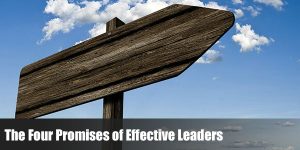Do You Know Yourself Well?
How well do you think you know yourself? Self-awareness is key to success in work, life, and relationships.
“Knowing yourself, and knowing the forces that affect the people who work for you, holds the key to being a successful leader.” ~ Kenneth M. Settel, MD, Clinical Instructor in Psychiatry, Harvard Medical School, CEO Psychology: Who Rises, Who Falls and Why (RosettaBooks, 2012)
Many of us know our character strengths, and over time have worked to develop them. At the same time, not being cognizant of our weaknesses can blindside our success.
The very character traits that peg you as having high potential may prevent you from making it to the finish line. Every strength has a downside when carried to the extreme. Self-awareness can prevent self-sabotage.
The Pitfalls of Strengths
Here are a few examples of personality traits with both their positive and negative sides from Dr. Rick Brinkman in his book Dealing with People You Can’t Stand.
You probably have a sense of your personal talents and liabilities. Learning how to leverage them – amplifying your strengths while minimizing your weaknesses – sets the stage for good interpersonal relationships. You’ll become less vulnerable and less sensitive to criticism.
Even the strongest, most talented people have flaws. Each of us is driven by conscious and unconscious forces that must be channeled into positive outcomes, so its important to seek personal development opportunities at every stage of your life. You won’t gain self-knowledge in a vacuum, so consider working with a mentor or experienced coach.
Here’s the challenge: if you were to sit down and write out your personality traits and then list a couple of ways they show up as a strength and as a weakness, would you be able to do it? Do you know yourself well?
We have self-centered minds which get us into plenty of trouble. If we do not come to understand the error in the way we think, our self-awareness –which is our greatest blessing–is also our downfall.~ Joko Beck, author
Open and Closed Mindsets
Eminent psychologist and human intelligence expert Howard Gardner (Extraordinary Minds, 1997) points out that exceptional people have a special talent for identifying their own strengths and weaknesses. They have open minds and are willing to take in feedback about their own deficiencies so they can improve themselves and their organizational performance.
People with a closed mindset, on the other hand, take in only the information that supports their views, and they’re more concerned with appearing superior and right. As a result, they easily distort information so they’ll look good.
Carol Dweck, PhD, an expert in motivation and personality psychology (Mindset: The New Psychology of Success, 2006), has discovered that mindset is not just a minor personality quirk. It creates our whole mental worldview and determines whether we become optimistic or pessimistic. It shapes our goals and attitudes toward work and relationships, and it ultimately predicts whether we will fulfill our potential.
Everyone has one of two basic mindsets:
- 1. One mindset is open to growth and learning, believing one can always do better.
- 2. The closed mindset is entrenched in the belief that natural talents and abilities predetermine success.
People with open mindsets believe they can always learn more, do more, and improve. They are confident, yet humble enough to work harder to expand their potential. They accept criticism as important feedback, not as a personal insult.
People with closed mindsets believe their innate talents rather than hard work will lead them to succeed.
They constantly seek validation of their worth and want to be right, instead of demonstrating an interest in accepting feedback and a willingness to make changes or adjustments.
If you have an open mindset, you know your talents can be nurtured and that great abilities improve over time. This is the path to opportunity – and success. On the other hand, if you find it difficult to accept and learn from criticism, you might be operating with a closed mindset.
How to Expand Self-Awareness
It’s hard to know how you come across to others if you don’t ask for feedback, which requires taking a risk and feeling vulnerable. With a growth mindset, however, you can open yourself to learning through conversations with trusted peers, a mentor, or a coach.
Here are areas that merit exploring in order to expand your awareness of how you respond to situations:
- Emotions:
- o How do you handle emotions, both your own and others’?
- o Do you know your “hot buttons”?
- o Are you aware of your feelings as they arise?
- o How well do you pick up on the feelings of others?
- o Situations:
- o How well can you read situations, climates, contexts?
- o Are you able to grasp the nature of a problem and analyze key points?
- o How curious are you about things you don’t know much about?
- o Failure:
- o How well do you handle your own and others? mistakes?
- o How do you assign blame?
- o Are you open to hearing feedback?
- o Do you play devil’s advocate, willingly examining your assumptions?
- o Can you own your responsibility in a problem?
- o Ego:
- o Do you try to keep your ego in check?
- o Do you encourage the success of others?
- o Do you express gratitude regularly?
- o Do you try to express more positive thoughts than negative ones?
- o Are you neither too harsh nor too lax with yourself?
- o Do you try to suspend judgment of other people, places, and things?
Self-awareness requires sensitivity to both inner and outer realities, knowing full well you can never perceive things without your own biases and filters. By keeping a growth mindset, you can ask the questions needed to listen and learn.

Creator of the KASHBOX: Knowledge, Attitude, Skills, Habits
Helping You Realize Your Potential
I help people discover their potential, expand and develop the skills and attitudes necessary to achieve a higher degree of personal and professional success and create a plan that enables them to balance the profit motives of their business with the personal motives of their lives.










